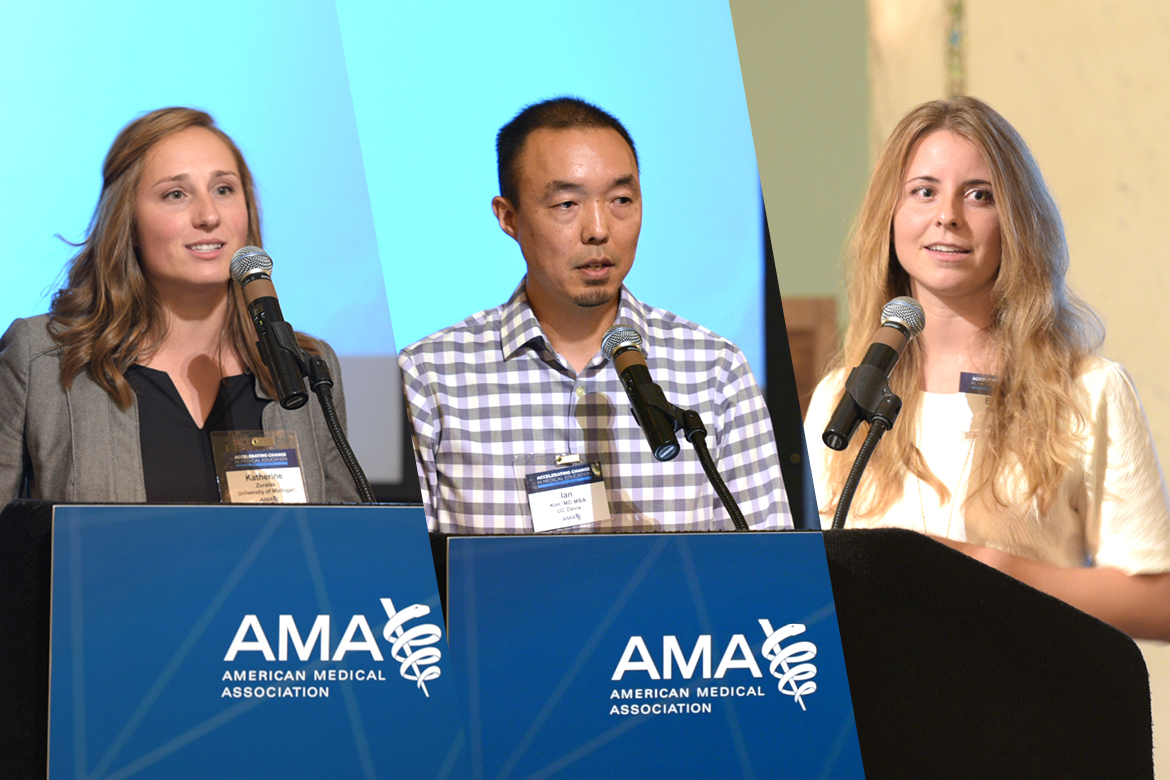When the AMA partnered with a select group of medical schools to form the Accelerating Change in Medical Education Consortium, their goal was to transform the training of future physicians to create a more well-rounded, system-focused generation of doctors.
Five years after that partnership began, the first cohort of those trainees enters residency instilled with that innovative approach to medicine. Three of these trainees—in Chicago to attend a consortium gathering—took the time for a Q&A about their experiences in medical schools that revamped their curricula to better serve patients and physicians.
Murphy: What, in your view, did you gain from the amended curriculum that prior generations of medical students may have not been provided?
Elizabeth Ferruzzi, MD, a first-year family medicine resident and recent graduate of the Brody School of Medicine at East Carolina University: The scientific aspect of medicine we have prepared for, don’t get me wrong, it’s difficult, but those things you can teach. It’s facts, its statistics, it’s a knowledge base—like anything else.
The art of medicine is a lot more nuanced. The fact that I went to a school that had a curricular change— we were taught a completely separate set of skills, learning about patient safety and quality, being able to relate to teams and understand team dynamics. Those are very interpersonal skills, and that’s where the art form comes in.
Murphy: Has your undergraduate medical training made you a better resident? How so?
Ian Kim, MD, a second-year resident in family and community medicine who is among the first med students to go through the University of California, Davis, School of Medicine’s Accelerated Competency-based Education in Primary Care program:
One of the unusual features of my medical school experience was that there was lots of learning in the clinic from day one. Unlike a lot of my classmates, when I started residency I had multiple years of experience being in a clinic, seeing patients, doing physicals, conducting histories, practicing assessment plans. That gave me a sense of comfort in the clinic.
I started medical school knowing I was going into primary care. I spent a lot of medical school preparing for primary care, so when I started residency I felt like I was a half-step ahead.
Murphy: How did your experiences shape your future in medicine?
Katie Zurales, a fourth-year medical student at the University of Michigan Medical School who has worked on building the school's Leadership Development Program:
My idea of what a doctor was changed throughout medical school. That was due to some of the curricular components we went through. At the beginning of med school, we were placed in a longitudinal group of 10 students that meets throughout our four years and talks about really sensitive topics.
We talked about how to discuss end-of-life care, how to really be empathetic and open to people from all walks of life and how to build good relationships with patients. That steered me in a direction toward a field where I could have a longitudinal relationship with my patients, where I can sit down and get to know them.
After going through those elements of the curriculum, my vision for kind of doctor I wanted to be shifted, and I now plan to go into ob-gyn.




